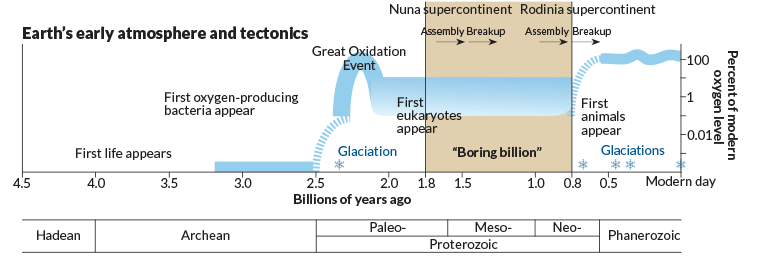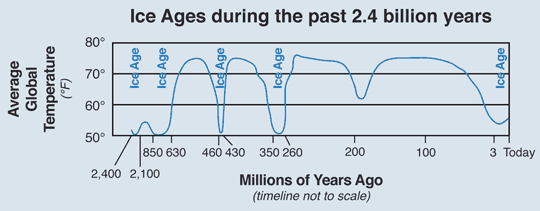‘The Deluge’ (1805) by J.M.W. Turner.
21 November, 2017 - 18:54 Dennis Brooks
The Comet that Sparked a Worldwide Flood ‘Myth’
More here
It http://www.ancient-origins.net/history-important-events/comet-sparked-worldwide-flood-myth-009168 that Noah’s Great Biblical Flood was caused by comet fragments striking the earth. Isaac Newton was the first one to come up with a theory connecting the flood to a comet strike, in 1680. According to an article at National Georgraphic.com , Newton declared that a comet had passed close to Earth thousands of years ago and came so close that it doused our world with water from its tail and exerted enough gravitational force to pull forth oceans from beneath our planet’s crust.
Now, a new theory provides evidence that backs up Newton’s idea that a comet was involved. According to this theory, between 10,000 and 12,000 years ago, a comet entered the earth’s atmosphere and broke up into thousands of pieces. Those fragments rained down fire and brimstone on the earth. Some of the fragments landed all over the world, including Europe and the Far East. It is estimated that over 500,000 fragments landed in north America alone.
C/2014 Q2 (Lovejoy) is a long-period comet discovered on 17 August 2014 by Terry Lovejoy. This photograph was taken from Tucson, Arizona, using a Sky-Watcher 100mm APO telescope and SBIG STL-11000M camera.
C/2014 Q2 (Lovejoy) is a long-period comet discovered on 17 August 2014 by Terry Lovejoy. This photograph was taken from Tucson, Arizona, using a Sky-Watcher 100mm APO telescope and SBIG STL-11000M camera. (John Vermette/ CC BY SA 4.0 )
Carolina Bays
The craters and impressions left behind by the bombardments are now called Carolina Bays . They are found in North America along the Eastern Seaboard. Most of them are within the coastal states of Delaware, Maryland, New Jersey, North Carolina, South Carolina, Virginia, Georgia, Florida, and Nebraska. The people in Maryland refer to them as Maryland Basins.
Fragments also landed in the Gulf of Mexico and in the country of Mexico. This comet strike, which can be called the Carolina Event, left behind evidence that scientists can use to determine when the event took place. This area still needs research! Researchers will have to excavate more of the craters and examine the different layers of sediment. This would be similar to the way we examine the rings of a tree to determine its age.
Startling Similarity between Hindu Flood Legend of Manu and the Biblical Account of Noah
What Became of Atlantis: The Flood from Heaven
The Rise and Fall of Cahokia: Did Megafloods Spell the End of the Ancient Metropolis?
This is a photo of a dozen or more Carolina bays. This is just north-west of Red Springs, North Carolina, USA.
This is a photo of a dozen or more Carolina bays. This is just north-west of Red Springs, North Carolina, USA. ( Public Domain )
Explaining a Worldwide ‘Myth’
The comet fragments that landed in the oceans caused worldwide flooding. This included all the shores and islands of both oceans. Tsunami waves backed up all the rivers, leading to the oceans including those in the Americas, Africa, and Europe, destroying everyone in the area. This would explain why all cultures all over the world have a flood (myth) story to tell.
The most deadly and disruptive floods would be talked about for years to come. Here Aztecs perform a ritual to appease the angry gods who had flooded their capital.
The most deadly and disruptive floods would be talked about for years to come. Here Aztecs perform a ritual to appease the angry gods who had flooded their capital. ( Public Domain )
Tsunami waves would have destroyed everything in the low-lying areas. This includes people on shorelines, in marshes, around bays, and in near shore valleys. The fragments that hit the Atlantic Ocean would have created a continuous wall of water going across the ocean. All the islands in the Atlantic Ocean would have been covered with water. Both The Canary Islands and Great Britain would have been under water, except for their mountains.
‘The Great Wave off Kanagawa’ (c.1830-1833) by Hokusai.
‘The Great Wave off Kanagawa’ (c.1830-1833) by Hokusai. ( Public Domain )
Tsunami waves forced their way through the Strait of Gibraltar and flooded the Mediterranean Basin. The water going in filled up the basin because no water had time to come back out through the strait. As the basin overflowed, the water flooded towns, villages, and seaports. Sea-levels in the Mediterranean Basin got higher and higher until the runoff went out into the desert.
The flood covered everything; including Alexandria, Beirut, Cairo, Egypt, Italy, and Jerusalem. When the floodwaters began to recede from the land, tons of trees, boats, ships, lumber, buildings, and bridges were carried back into the sea. This floating debris converged at the strait and clogged the opening with floating ships, boats, lumber, and trees. Floodwaters would have carried dead bodies, grass, mud, and silt to the dam and sealed it to prevent the flow of water back into the ocean. According to an article by ABC News, floodwater overfilled the Basin of the Black Sea. You can also read this in the research of Robert Ballard: “Evidence Noah's Biblical Flood Happened.”
Pages
next › last »
Upload photo
Would you look at a profile that doesn't have photos?
Probably not! Upload a photo for others to be interested.
- Higher position in search results!
- Users with pictures get 10 times more responses in their messages
- Most people only contact those with pictures
Jenny
Lina
Anna
Jessica
Dony











